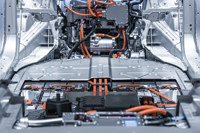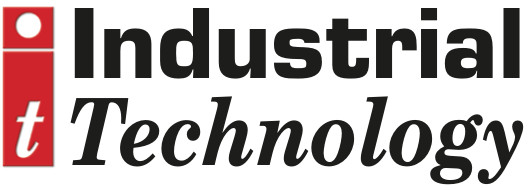
Posted to News on 25th Jan 2020, 00:00
Robots play key role in the manufacture of EV battery packs
The growth in the number of electric and hybrid vehicles available today demonstrates the automotive industry’s determination to act upon environmental concerns. Electric vehicles (EVs) with their low or zero emissions are definitely becoming a highly strategic part of many OEMs’ business strategies.

This continued growth in demand for electric vehicles brings with it the need for a huge supply of the lithium-ion batteries required to produce the power packs. In keeping with the automotive sector’s philosophy of automating manufacturing processes, battery production also needs to be automated, not only to keep pace with demand, but also to ensure the high standards of quality and safety required.
With the compound annual growth rate (CAGR) for electric and hybrid vehicles alone estimated at around 35%, not to mention the increase in manufacture of energy storage facilities, which also use similar technology, it is clear that there is, and will continue to be for some time, a very high demand for lithium-Ion battery technology. Lithium-Ion batteries come in a number of forms including prismatic, cylindrical and pouch. However for automotive applications, the individual cells are predominately of the cylindrical variety, typically 3.7V and 2600mAh.
Stäubli robots are playing an increasingly important role in the manufacture of these battery packs, as sales manager Simon Jenkins explains: “The battery pack in an electric vehicle comprises a number of battery modules, which in turn are made up from individual battery cells. Some EVs may have around 3,000 individual battery cells, so as you can imagine automation plays a key role in the manufacture of these items.
“Depending upon the specific configuration of the automated production system, the applications for our robots can differ. The typical process steps where our robots add value include: initial unpacking of individual cells, handling and transferring cells through cleaning, voltage and resistance testing, laser marking and segregation of any reject cells, before good cells are assembled into module bases.”
The demand for battery packs, although significant from the major OEM’s, is just one of the growth factors within this sector. The development of increasing numbers of autonomous vehicles, together with a move towards replacing conventional petrol and diesel powered last mile delivery transport with electric powered alternatives will continue to place greater demand on battery manufacturers.
Jenkins concludes: “The EV revolution opens up tremendous opportunities for Stäubli, as our existing range of field proven robots dovetail neatly into this demanding production environment. In addition to the cleanliness, speed and precision, for which our systems are already renowned, we have recently introduced ESD compliant versions of some of our range, which makes them ideally suited for both applications in battery manufacture and motor assembly.






